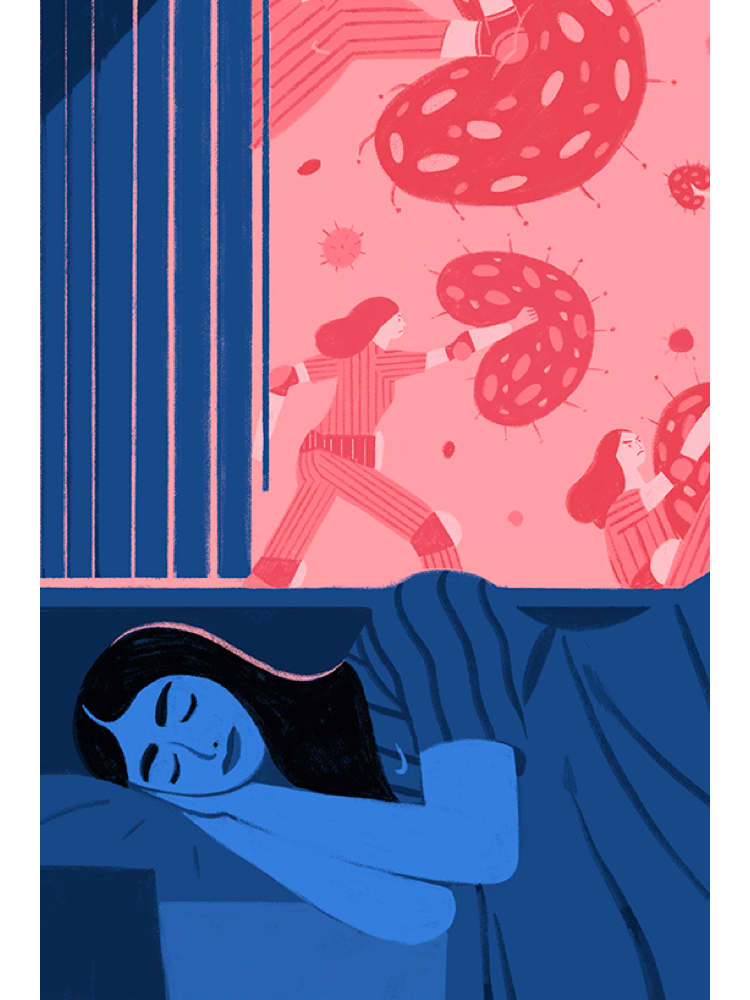During the cold or flu season, a good night’s sleep is the key to the best health, as well as fitness. Many studies have shown that sleep directly affect the body’s immune system. One of the main consequences of lack of sleep is a weakened immune system. Therefore, sleep is a top priority on the list of things to do to stay healthy.
Contents
Sleep and your immune system
When it comes to looking after your immune system, most of us know how important things like diet are, but did you know that sleep can have a huge effect too?
This is something that has been researched for many years, and scientists are still trying to figure out the exact relationship between sleep and the immune system. However, what they do agree on is that a lack of sleep can severely impair your immunity and make you more vulnerable to infections like colds and flu.
Research
In fact, studies on the sleep-immune relationship have been carried out for many years. Researchers have learned a lot about this issue, and so far they have come up with some useful conclusions. Sleep disorders and the body’s immune system have a complicated relationship. Much of the immune system helps control sleep, and sleep itself also directly affects the ability of the immune system to function.

When studying how sleep deprivation affects the body’s immune system, the University of Pennsylvania has shown that short-term sleep deprivation causes a significant effect on the function of the immune system. The team also found some surprising results, that not all of the effects on sleep are bad. These results have opened up new opportunities for future research on the topic: how much sleep actually contributes to human health.
Another research group at the UCLA Cousins Center, while studying the topic of sleep, also found that even less sleep can trigger a response of the immune system in the body, increasing inflammation. infection, resulting in tissue damage. These findings specifically help us understand more about the link between sleep problems as well as the increased risk of diseases such as diabetes, arthritis, heart disease, and more. obesity and other cancers.
Research results
The reason that the body’s immune system is so closely related to sleep is that during sleep, substances in the body are released or released. The human body needs hormones, proteins and other substances to fight disease and inflammatory diseases. As a result, lack of sleep reduces the availability of hormones, making the body more susceptible to new viruses or bacteria. Not only are they susceptible to infection, but once they are sick, the body tends to be sick for a longer period of time, which is due to the lack of sources of resistance against bacteria.

Different stages of sleep bring different benefits to the body. The first and second stages are related to stability, helping to rhythmic breathing and lowering body temperature. The third and fourth phases of the sleep cycle help the body to restore itself and regain energy after a tiring day. During this time, muscles relax and their blood supply increases. At this point, the body is repairing tissue damage and developing new tissue. Important hormones (hormones) are created and the body’s energy is restored. The sleep cycle is an extremely important factor in maintaining a healthy immune system, and any sleep disturbance affects our health.
Learn about the 4 stages of the sleep cycle
Strengthening the immune system doesn’t require us to spend extra time sleeping but it does need to ensure that the body is fully rested when it is needed. Adults typically need 7 to 8 hours of sleep each night; kids and teens need more, 9 to 11 hours of sleep each night. Maintaining regular sleep is the key to good sleep hygiene and strengthening the body’s immune system. In addition, we should not sleep too much. Sleeping too much is not the best way to help your body. Adults who regularly sleep more than 10 hours each night may be at an increased risk of several diseases.
In short, sleep is one of three factors that help people maintain a healthy body. Along with healthy eating habits and moderate exercise, having a good night’s sleep keeps us awake, active and healthy during the cold and flu seasons.
